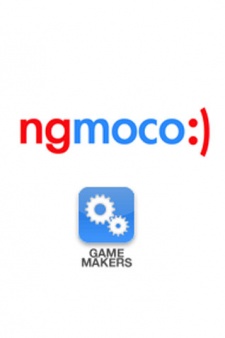"Don't be afraid to fail. I only get into trouble when I fail and don't learn from it," said Caryl Shaw, executive producer, ngmoco, at the GDC Smartphone Summit in a talk entitled The ngmoco Live Time Playbook: Life After launch.
Previously working in the restaurant industry, before heading into games with EA, and then moving to ngmoco for the We Rule launch 12 months ago, Shaw said there was great similarity between her current job and previous career.
"In restaurants, I spent my time making awesome food and serving it to customers so they would be happy and pay me money. We do the same thing with games now," she said. "
Data mining
Defining a Live Team as the group of 12 or 13 developer who run an online game after launch, Shaw pointed out some of the tricks that ngmoco uses to grow its games' audience, improve the activity of players, and retain them for as long as possible.
"Every morning I check out stats from the day before to see what's going on," Shaw said, of her daily schedule.
Broken out broadly in terms of Reach, Retention and Revenue, running games such as We Rule and GodFinger is all about analysing data and experimenting with the levers build into your game and infrastructure to improve overall performance.
"Your stats need to be up and running from day one of launch," she said.
"Learning about customers is the most important thing in the post-launch period. When your game is live, you have regular customers, and you have a regular feedback loop with them, and you're building a large dataset about them."
Levers of cash
A significant issue ngmoco looks at - with respect to revenue - is how its in-game currency and in-app purchase currency is spread throughout customers, broken down in terms of the players' levels.
One reason this is interesting is that as players play longer, the more currency they will accumulate, so developers need to be providing expensive and aspiration items that will suck up currency, to keep high level players playing, as well as giving lower level players future goals.
Of course, developers always need to be adding new content - generally this happens two or three times a week for ngmoco's titles.
Similarly, developers should be thinking about subtle changes they can make to their game, especially in terms of tweak the conversion rates between the in-game virtual currency and real cash.
"I have financial goals to meet, which can change a monthly or quarterly basis," Shaw says, of the forces that ultimately shape ngmoco's operations.
All about promotion
Ngmoco generates cash in a variety of ways. Most obvious is in-app purchases, but in-game ads via its Plus+ social platforms, as well as selling per install to thirdparties is also important. Finally, ngmoco works with Tayjoy to provide offer walls promotions.
Perhaps more important than these channels however is the speed at which publishers and developers can promote special events, special items and sales to their audience to reach direct revenue.
Discover me
However, the hardest part of the business - even for a well funded publisher such as ngmoco - is getting more customers.
"Reach and growing our customer base is the most challenging part of our job," Shaw said.
"Discoverability remains a challenge on the App Store and it's really, really hard on the Android Market."
And despite ability to cross promote its games to millions of players across Plus+, as well as spending some money on in-app advertising and buying installs from within other games, it's still the case that people who find ngmoco's games themselves are the most highly prized.
"Organic customers are the best customers, and they stick around the longest," Shaw explained.
There might be a vast focus in the industry currently concerning data and analytics, but coming up with a great game remains the best starting point for a success.
GDC 2011: Data, revenue, reach and learning from failure: ngmoco's live game playbook
#gdc11 Making the most out of your audience





















